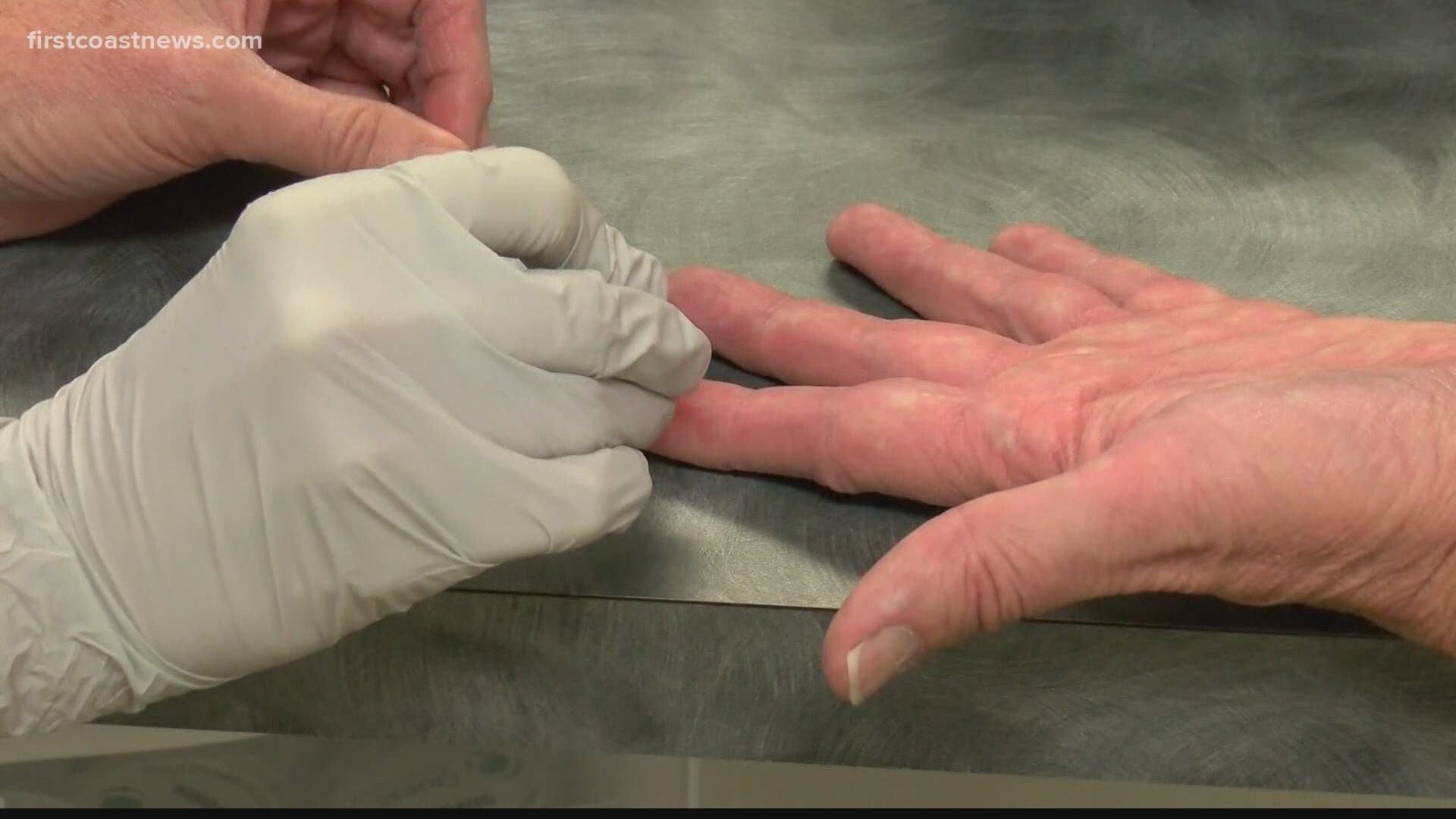JACKSONVILLE, Fla. — The approved COVID-19 vaccines by Pfizer and Moderna cut the chances of serious symptomatic illness and death from the virus. However, it is still possible to receive a positive COVID-19 test result event after being vaccinated.
Unlike the annual influenza vaccine, which uses bits of dead flu virus to create an immune response to the flu in a person's body, the COVID-19 vaccines currently in use in the United States do not use the virus itself to boost the immune system.
"There's actually no COVID DNA, RNA, or genetics in the vaccine for COVID," said Chad Neilsen, Director of Infection Prevention at UF Health Jacksonville. "They're just blueprints to teach your body how to make that response."
Neilsen said it is a common misconception that the COVID-19 vaccines inject the virus to protect against it. Rather, the messenger RNA (mRNA) technology in the vaccines has been studied for years, and allows researchers to "plug in" genetic coding to create a defense in the body.
Still many people are concerned they if they received the vaccine, could they still test positive for the virus. Neilsen said it depends on the type of test.
For the common nasal swab test (known as the PCR test), the answer is no, assuming you do not have an active infection.
"That one's actually testing for bits of the virus inside your body, so a vaccine that does not contain the virus is not going to make you trigger positive on those [nasal] swabs," Neilsen said.
However, if you were to take an antibody test, Neilsen added it is possible the vaccine could cause you to test positive.
"The antibody test is looking for certain parts of your immune system that have formed in response to the virus," Neilsen explained. "If you've been vaccinated once or even twice, you might pop positive on an antibody test because your body has formed that response due to the vaccine."
While studies are still ongoing, scientists believe it is possible to still become infected with COVID-19, even when vaccinated. Again, the vaccine essentially works to prevent sickness and death from the virus.
Neilsen said there is also still a lack of consensus on whether the vaccine stops transmission of the virus, although there has been promising news out of countries with higher vaccination rates.
"There is some limited evidence emerging from Israel that actually people are not able to even be infected by COVID-19 if they've been vaccinated, but we don't have the full evidence yet," Neilsen said.

